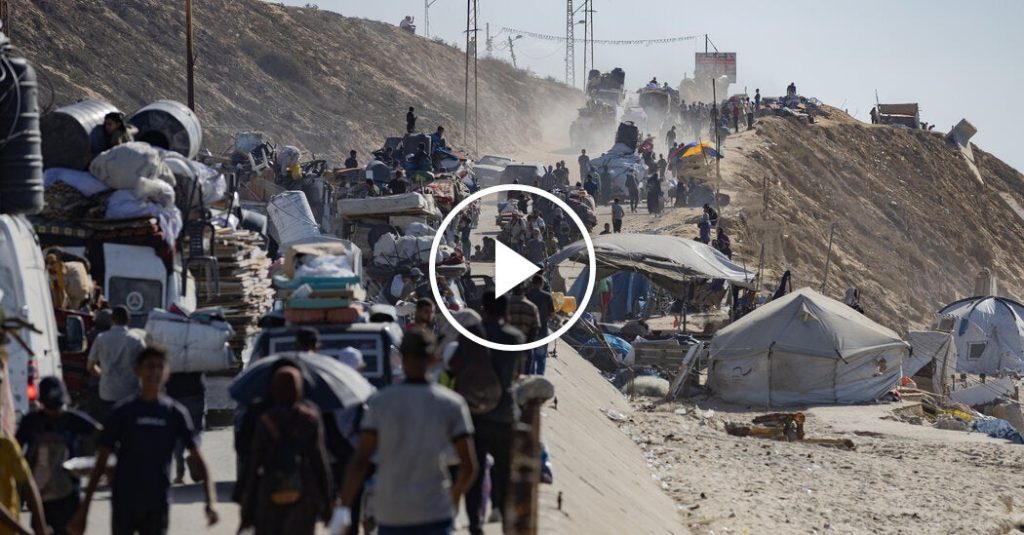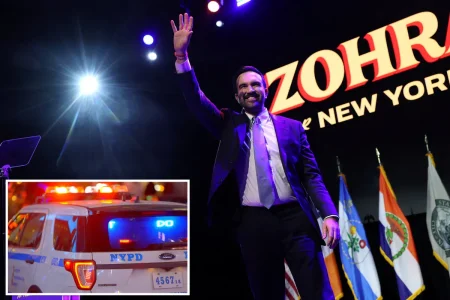Palestinians React to International Recognition of Statehood: Hope Amid Ongoing Conflict
Western Nations’ Recognition Sparks Mixed Emotions in Gaza
By Jordan Mitchell | September 22, 2025
In a significant diplomatic development, several Western nations formally recognized Palestinian statehood on Sunday, prompting varied reactions from Palestinians across Gaza City and the broader Gaza Strip. This long-awaited recognition comes amid continued regional tensions and represents what some are calling a potential turning point in the decades-long Israeli-Palestinian conflict. For residents of Gaza, who have endured cycles of violence and economic hardship, the news arrived with a mixture of cautious optimism, skepticism, and questions about what tangible changes might follow.
The recognition of Palestinian statehood by Western powers marks a substantial shift in international diplomacy. Countries including Spain, Ireland, Norway, and Belgium have officially acknowledged Palestine as a sovereign state, with others signaling potential plans to follow suit. This wave of recognition represents one of the most coordinated diplomatic efforts toward Palestinian statehood in recent years. “This is a moment we have waited for across generations,” said Nadia Hamdan, a 68-year-old grandmother in Gaza City who recalls previous periods of optimism that ultimately gave way to disappointment. “But we have learned to be cautious with our hope.” The formal recognition follows years of stalled peace processes and comes at a time when humanitarian conditions in Gaza have reached critical levels, with infrastructure damage, restricted movement, and limited access to essential resources characterizing daily life for most residents.
Between Hope and Skepticism: Voices from Gaza
The streets of Gaza City revealed a complex tapestry of emotions as news of the diplomatic recognition spread throughout neighborhoods still bearing the physical and psychological scars of conflict. “Recognition is important symbolically, but we need concrete changes on the ground,” explained Mohammed Abed, a 34-year-old teacher whose school has operated intermittently due to security concerns and resource limitations. “What we need is freedom of movement, economic opportunity, and safety for our children.” For younger Palestinians who have known only restriction and conflict, the announcement prompted questions about practical implications. University student Leila Nasrallah, 21, expressed measured enthusiasm: “My entire life has been spent under blockade and with limited horizons. While I welcome this recognition, I wonder if it will translate into actual sovereignty and the ability to travel, work, and live without constant crisis.”
The timing of this diplomatic wave has particular significance, coming after periods of intense conflict that have devastated Gaza’s infrastructure and economy. Local business owner Karim al-Bakri described the paradox of receiving news of statehood recognition while struggling with practical challenges: “My shop has been rebuilt three times in the past decade. International recognition is meaningful, but what about reconstruction aid, trade opportunities, and the ability to import materials without restriction?” Community leaders emphasized that diplomatic recognition, while valuable, represents just one element of what Palestinians see as necessary for genuine statehood. Dr. Hanan Ashrawi, a prominent Palestinian political analyst, noted in a statement that “recognition must be accompanied by concrete measures to end occupation, dismantle settlements, and establish viable Palestinian sovereignty with territorial contiguity.”
International Relations and Regional Implications
The coordinated recognition by Western nations signals a potential realignment in international approaches to the Israeli-Palestinian conflict. Diplomatic sources indicate that this move reflects growing frustration with the lack of progress in peace negotiations and concerns about deteriorating conditions for Palestinians. “This recognition acknowledges the reality that a two-state solution requires treating both parties as legitimate political entities,” explained Ibrahim Nasser, professor of international relations at Al-Azhar University in Gaza. “However, recognition alone doesn’t resolve the fundamental issues of borders, security arrangements, Jerusalem, and the right of return for refugees.” The decision has generated significant diplomatic tension, with Israeli officials strongly condemning the move as “counterproductive” and “undermining the possibility of direct negotiations.”
Regional experts note that the recognition’s practical impact will depend largely on subsequent policy decisions by these countries and responses from key stakeholders. “The real test will be whether recognition translates into meaningful support for Palestinian institutions, economic development, and pressure to address ongoing rights violations,” said Sara Khalidi, a political analyst specializing in Middle Eastern affairs. The Palestinian Authority in the West Bank welcomed the announcements as “historic,” while Hamas officials in Gaza issued more reserved statements, acknowledging the diplomatic significance while emphasizing that “recognition must lead to concrete changes in the siege conditions and occupation practices.” Neighboring Arab states have largely endorsed the wave of recognition, with Jordan’s foreign minister calling it “an overdue step toward justice and stability in the region.”
Economic Realities and Humanitarian Considerations
For many Gazans, questions about economic opportunity and humanitarian conditions remain paramount, regardless of diplomatic developments. Gaza’s unemployment rate has hovered around 45 percent, with youth unemployment significantly higher. Economic strangulation has created a dependency on international aid that recognition alone cannot immediately address. “I want to believe this means something for my children’s future,” said Fatima Riyad, a mother of four working as a healthcare assistant. “But tomorrow we still face the same electricity shortages, water problems, and limited medicine supplies in our clinics.” Economic analysts point out that meaningful statehood would require removal of restrictions on Gaza’s ports, borders, and airspace to enable normal commercial activity.
Humanitarian organizations operating in Gaza caution that diplomatic recognition must be accompanied by practical measures to address immediate needs. “While political recognition is important, we continue to face severe challenges in delivering essential services,” explained Omar Suleiman of the Gaza Relief Council. “Our immediate concerns are rebuilding damaged infrastructure, ensuring consistent electricity and clean water supply, and addressing psychological trauma, particularly among children.” International aid workers emphasize that genuine improvement in Palestinians’ lives would require not just diplomatic recognition but a comprehensive approach to ending restrictions, enabling economic development, and addressing the physical and social infrastructure damaged by years of conflict and isolation.
The Path Forward: Challenges and Possibilities
As Palestinians absorb the news of diplomatic recognition, attention turns to what may follow this symbolic milestone. Political analysts suggest that recognition could potentially strengthen Palestine’s position in international bodies and legal forums, including access to international courts and financial institutions. “Recognition theoretically opens doors to new diplomatic, legal, and economic tools,” explained Dr. Layla Maan, an expert in international law at Birzeit University. “However, translating recognition into actual sovereignty requires addressing the physical realities of occupation, separation barriers, checkpoints, and settlement expansion.” For recognition to meaningfully impact daily life, Palestinians and international observers agree that it must be followed by concrete measures addressing security concerns, freedom of movement, economic development, and governance capacity.
The coming months will test whether diplomatic recognition represents a turning point or merely another symbolic gesture in a long conflict. Youth activist Tariq Samara perhaps best captured the sentiment prevalent across Gaza: “We appreciate recognition, but we live in reality, not diplomatic papers. True statehood means the ability to live with dignity, move freely, build our economy, and determine our future. That’s the measure by which we’ll judge whether this moment matters.” As the international community watches for next steps, Palestinians in Gaza continue their daily struggles while processing what statehood recognition might eventually mean for their lives and future generations. The diplomatic milestone has introduced a new element into a complex landscape, but for residents of Gaza, the true test will be whether recognition ultimately helps transform their lived reality.











